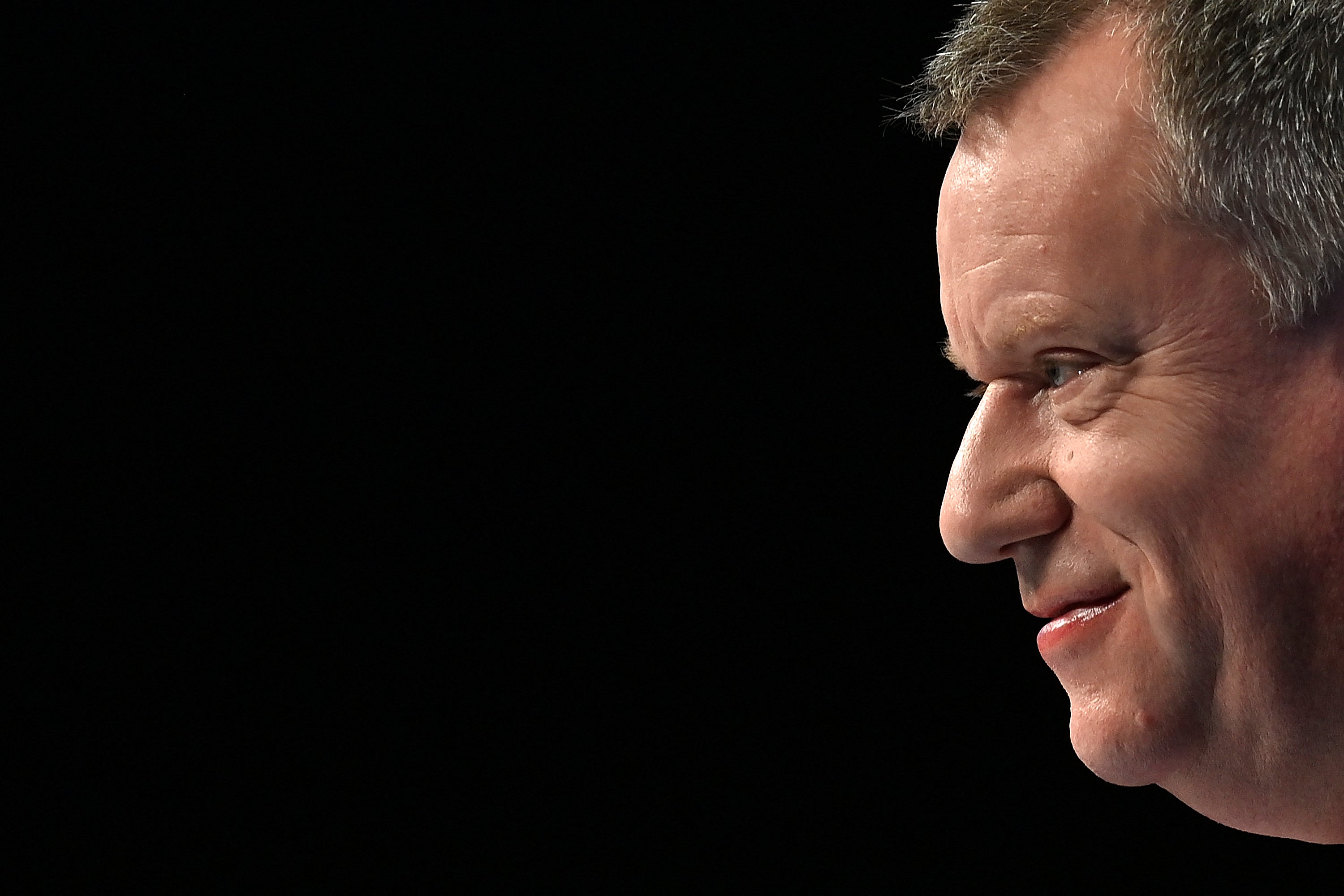The government is behaving dishonourably, once again, in its dealings with the EU
Editorial: The British once again want to have their cake and eat it – to honour the Good Friday Agreement with no economic border in Ireland, but also to have no economic border between Northern Ireland and Great Britain

In what is apparently known in spin-doctoring circles as a “prebuttal”, Lord Frost, Britain’s minister of state for EU relations, has delivered the government’s response to the EU’s latest initiative to make the Brexit deal work a day before the EU Commission is due to release it.
This, presumably, is for the presentational purpose of making it look as though Maros Sefcovic, a vice-president of the EU Commission, is unreasonably dismissing the British government’s supposedly modest request to renegotiate the Brexit deal – the one negotiated and signed off by that self-same Lord Frost at the end of 2019.
The UK withdrawal agreement, complete with its Northern Ireland protocol, has been passed by the UK and EU parliaments, democratically endorsed (or so the government has always claimed) in a British general election, and lodged with the United Nations as an international treaty. Now the British want, not for the first time, to renegotiate their relationship with the EU – meaning, among other things, that Boris Johnson did not “get Brexit done” after all.
In any case, what Lord Frost is now proposing goes far beyond what has previously been advertised by the British government as the basis for their grievances: its practical application. There were many such matters left unresolved at the end of the talks, and that is why the withdrawal agreement and the Northern Ireland protocol had a structure of joint committees, specialist working parties and arbitration mechanisms built into them. The EU is still merely asking to implement the agreement, and to settle outstanding issues, such as the moving of chilled foods, rose bushes, medicines and preserved meats in or out of Northern Ireland, through those agreed channels.
The British government has consistently argued that the EU is not being flexible enough, and has asked for more flexibility on the details. Yet now that the EU is about to concede that, and hand victory in the “sausage wars” to the British, suddenly Lord Frost has upped the ante and demanded fundamental changes to the text of the protocol document – a thorough renegotiation. These go beyond even what he outlined in the summer: what was a request to change the role of the European Court has become a demand.
The government is behaving dishonourably, once again, over its international obligations; but more than that it is pushing its luck and, dangerously, provoking a trade war. The EU has shown itself willing to listen to pleas from London and Belfast about the damaging effects of the protocol on the economy and political stability, and to change the way the protocol operates accordingly. What it cannot do is renegotiate the deal. This is for two reasons – one political, one logical.
The EU cannot accept, as the British propose, that part of the EU single market should accept a “dual regulatory regime” with a third country (the UK), because that would mean, in effect, that the whole of the single market must accept UK rules and regulations as though they were of equal standing with the EU’s own rulebook. Logically, it would require the EU to put a trade border in place between Ireland and the rest of the EU – an offensive notion. Much the same goes for the British demand that the European court should no longer rule on violations of the single market in Northern Ireland. It is a non-starter.
Logically, indeed, if the UK wishes to abolish the new economic border between Great Britain and Northern Ireland, which it agreed to so recently, then it should suggest where it would like the new border to be, but it cannot do so because all agree that there cannot be a border on the island of Ireland, nor between Ireland and the rest of the EU.
The British once again want to have their cake and eat it – to honour the Good Friday Agreement with no economic border in Ireland, but also to have no economic border between Northern Ireland and Great Britain. Even with goodwill, the circle cannot be squared; to the extent it ever was, it was done when the protocol was framed.
Optimistically, Lord Frost’s latest demands are just a try-on, and the government won’t unilaterally suspend parts of the Northern Ireland protocol using the Article 16 procedure, as it has been threatening to do. If, however, Mr Johnson were to order Lord Frost to escalate the dispute, trigger Article 16, and leave a large hole in the EU’s sacrosanct single market, the prime minister would be backing the EU into a corner from which it would be unable to retreat – not least because these British demands are illogical. The EU, driven by France, would feel obliged to retaliate.
At a moment of extreme domestic weakness, the British would be inviting punitive selective tariffs on exports, a rationing of electricity supplies from France, and non-cooperation over the migrant boats. The EU might even feel obliged to introduce border checks on the Irish-Northern Irish frontier. What is more, that would attract the wrath of Joe Biden, already suspicious of British intentions in Ireland, and end the prospect of any trade and investment deal with America.
Is Mr Johnson such a reckless gambler that he is prepared to take on Brussels and Washington simultaneously, and ignite a new round of Troubles in Northern Ireland?



Join our commenting forum
Join thought-provoking conversations, follow other Independent readers and see their replies
Comments